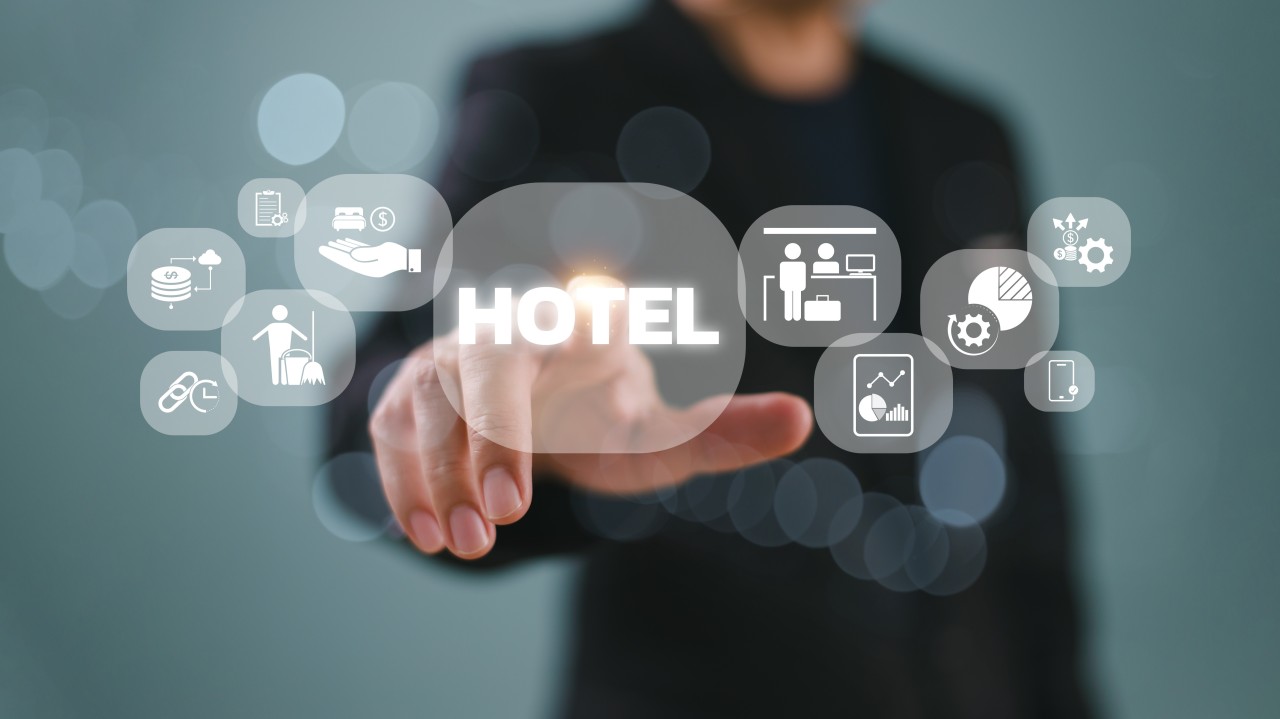Choosing a hotel management system that enhances your facility's performance and facilitates its operation is a crucial step to ensuring efficient workflow and guest satisfaction. Whether your facility is a small hotel, resort, or large hotel chain, choosing a hotel management system increases the efficiency of your facility and facilitates your daily operations of booking, rooms, and customer services. The success of a hotel depends largely on the technology used to manage operations, so choosing the right system becomes essential to achieving guest satisfaction and increasing revenue In this article, we review the most important steps for choosing an effective and strong hotel management system. Read on.

What is a hotel management system?
A hotel management system is a comprehensive digital program that helps hotel establishments organize all daily operations and manage data centrally. The system typically includes room reservations, appointment management, revenue and expense tracking, human resource organization, and accurate reporting to improve performance. By adopting an effective real estate program, hotels can reduce manual errors, increase service speed, and significantly improve the guest experience.
Steps to choose a hotel management system that suits the size of your facility
As we mentioned at the beginning, we will review for you the most important steps for choosing a hotel management system that suits the size of your facility and contributes to its development:
1. Start by identifying your hotel facility's needs
When considering investing in a hotel management system, the first step begins with a thorough understanding of the nature of your facility and its operational needs. The requirements of small hotels differ from those of large hotels or beach resorts, and therefore a unified hotel management system cannot be adopted for everyone.
Ask yourself: How big are the daily operations at the hotel? How many rooms? Do you operate a restaurant or entertainment services within the facility? These questions enable you to determine what characteristics a real estate and hotel management program should have, whether it is a simple system that focuses on managing reservations and invoices, or an integrated system that includes employee management, inventory, and customer relations.
2. Understand the difference between local and cloud systems
One of the most important decisions facing hotel managers today is choosing the type of system: local or cloud, Local systems are installed on computers inside the hotel and give you complete control over the data, but they require strong maintenance and hardware costs. As for cloud systems, they are managed over the Internet, and are characterized by easy access from anywhere, automatic updates, and a fixed monthly subscription cost.
If your facility is small or medium, a cloud hotel management system is often the perfect choice because it is flexible and scalable as the hotel grows. Large establishments preferred a local hotel management system to ensure the highest levels of security and data control.
3. Choose a system that supports integration with other systems
Integration is one of the most important criteria for choosing a hotel management system. The ideal system does not operate in isolation, but rather integrates with other tools such as accounting systems, point-of-sale software, and online booking platforms such as Booking.com and Expedia.
This integration helps reduce human error, speed up workflow, and save employees time on repetitive tasks. If a hotel management system is not integrable, you will have to use multiple property management systems separately, which increases operational costs and reduces efficiency.
4. Focus on user experience and ease of interface
If your hotel management system is feature-rich, its complex design may make it difficult for employees to work with. Therefore, you should choose a hotel management system with an easy and intuitive user interface. A good system allows the receptionist, reservations manager, and accountant to work with it easily without the need for long training.
Systems that provide interactive control panels and visual reports also make the decision-making process faster and more accurate, especially in large hotels that need to monitor performance in real time.
5. Ensure ongoing technical support is available
Technical support is an element that cannot be ignored when choosing a hotel management system. Even the best systems may experience malfunctions or update issues. Ask the provider: Does they provide technical support around the clock? Is there a direct communication channel like WhatsApp or email? Then choose a provider that offers initial employee training and periodic system updates to ensure it's compatible with the latest hospitality technologies.
6. Pay attention to the cost of the system and pricing plan
Hotel management software prices vary greatly based on features and hotel size. Some systems rely on a monthly subscription per room or per user, while others require a fixed fee or down payment. All you have to do is accurately calculate the total cost, including training, support, and future upgrades.
In small hotels, it is preferable to choose a flexible hotel management system at a low cost that can be developed later as the facility expands, while in large hotels, it is preferable to invest in a complete and excellent real estate and accounting program, and an integrated system, even if it is the highest cost, because it will improve operational efficiency and return on investment.
7. Check security and data protection features
With the rise of digital threats, hotel data security has become crucial. Hotels handle sensitive guest data such as payment and reservation information, so choose a hotel management system that uses data encryption techniques and stores it on secure servers, with periodic backups.
It is also preferable for the hotel management system to comply with international regulations such as GDPR to protect customer privacy, as in large hotels that deal with thousands of guests annually, any simple hack may lead to financial losses and damage to reputation.
8. Do not neglect the possibility of future expansion
When choosing a hotel management system, think not only about the current situation, but also about the future, and ask yourself: Can you add new branches easily? Does the system allow multiple locations to be managed from a single dashboard? An scalable system is a long-term investment, especially if you're planning to open a new hotel or upgrade existing services such as resorts or tourist villas. It's also always better to choose a property management program that offers flexible upgrade capabilities rather than replacing it entirely in the future.
Conclusion:
Choosing the right hotel management system is not just a technical decision, but a strategic one that impacts every detail of daily work. A small hotel requires simplicity and flexibility, while larger establishments require integration, security, and analytical intelligence. Find a balance between features, price, and ease of use to find a system that grows with your hotel step by step toward success.
other topics:
reference:
1. << Simplifying the Real Estate Business: Property Management Software’s Impact
>>, analyticsinsight.
2. <<What Are The Top Software Tools For Property Managers? >>, realtybiznews.

Add New Comment